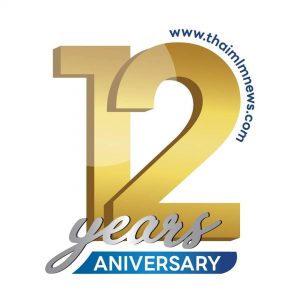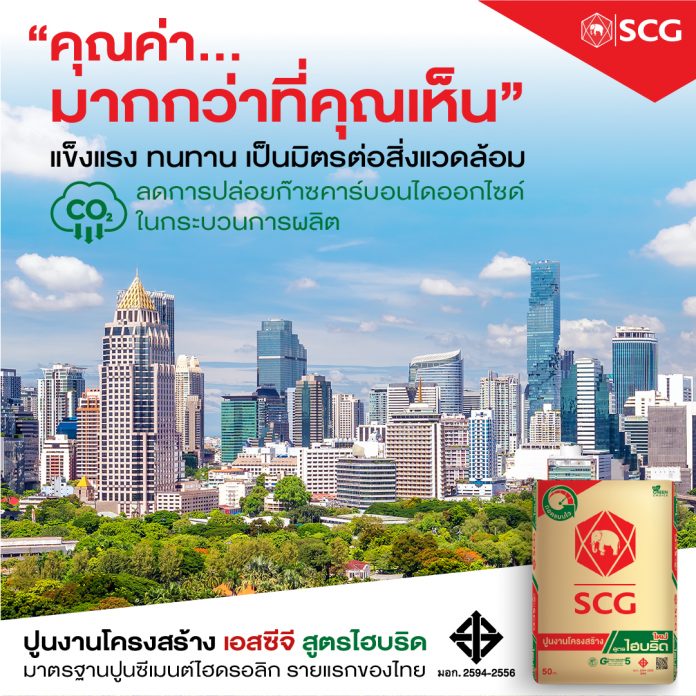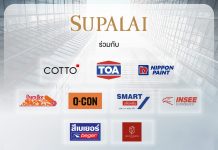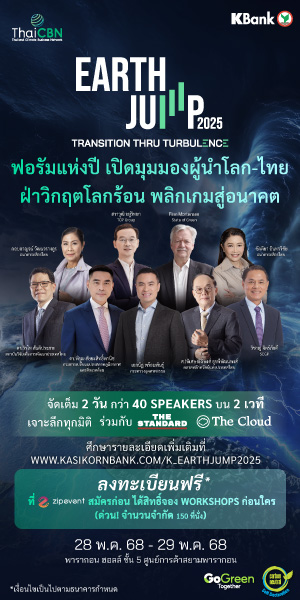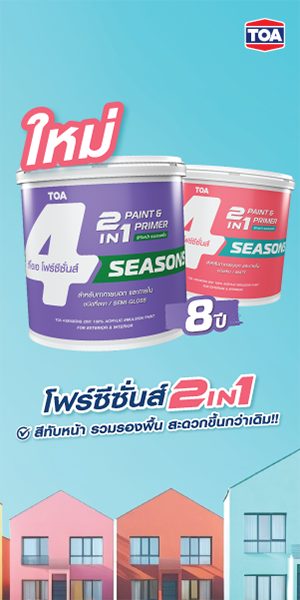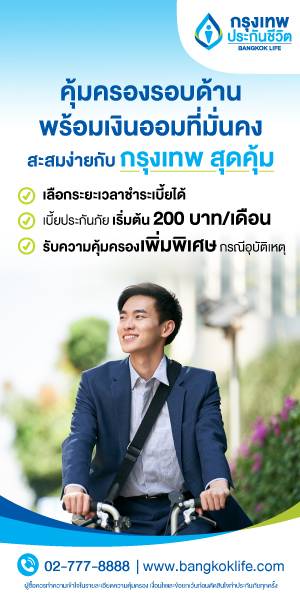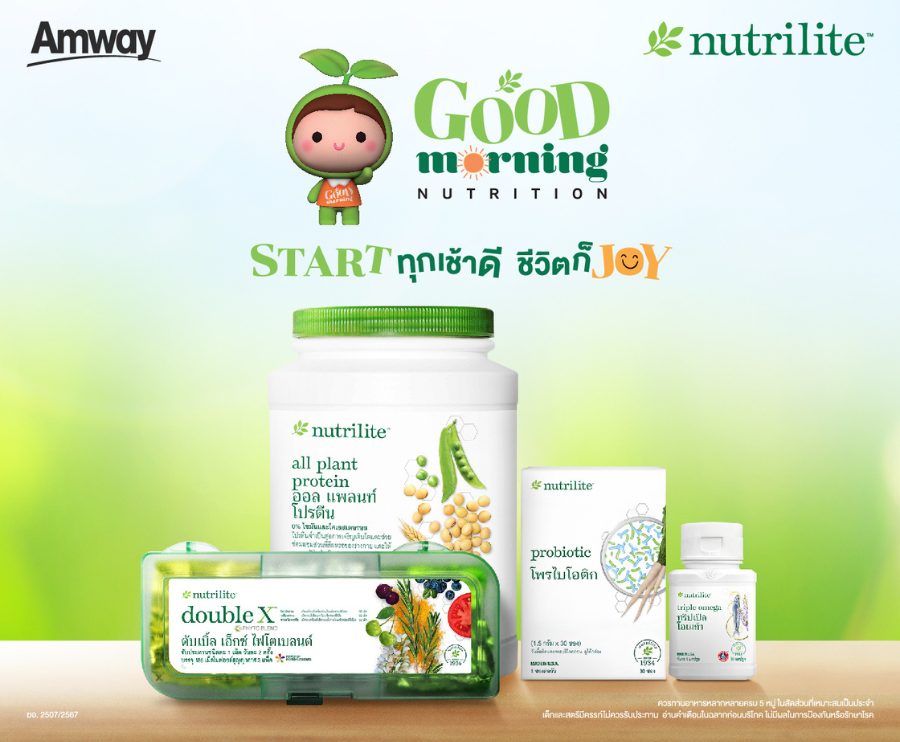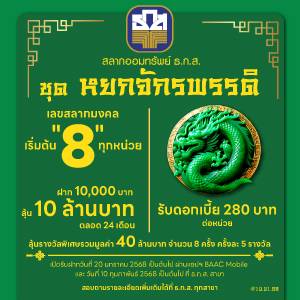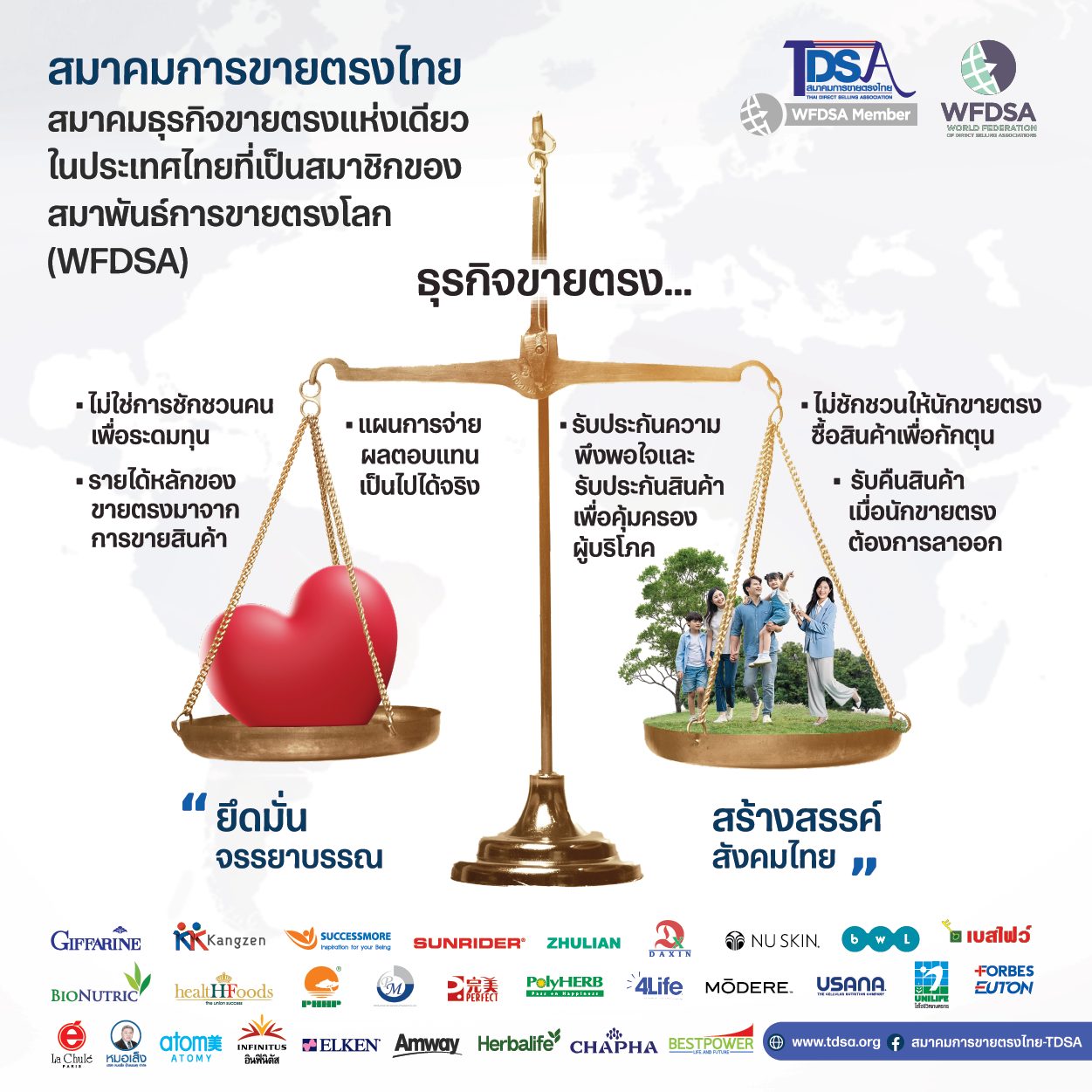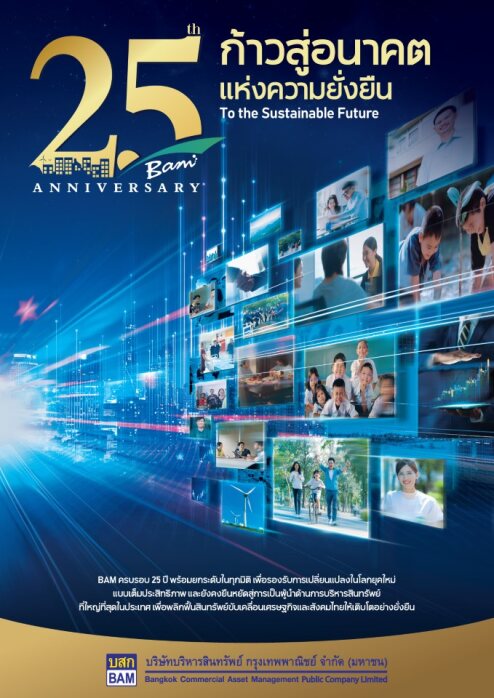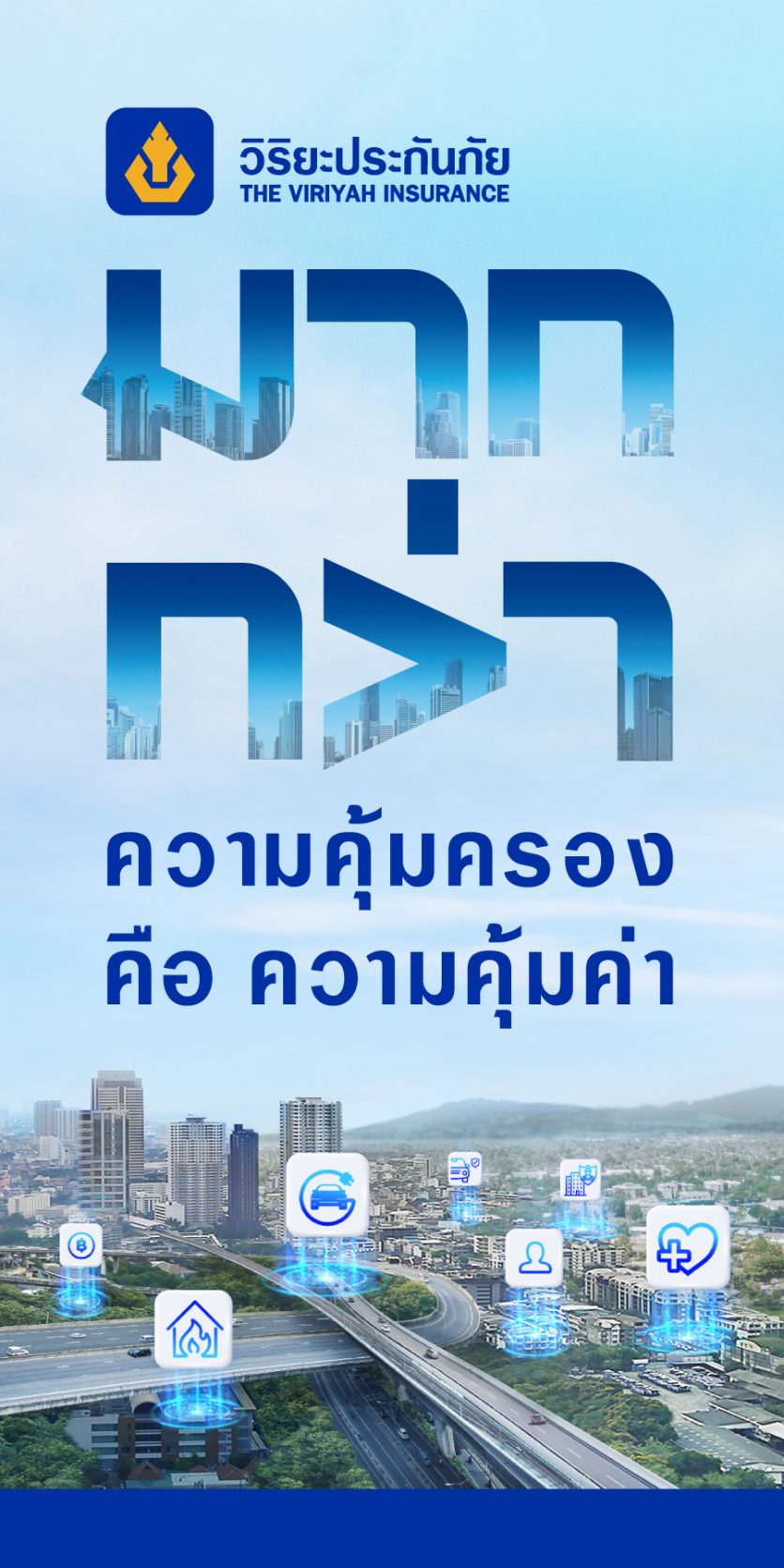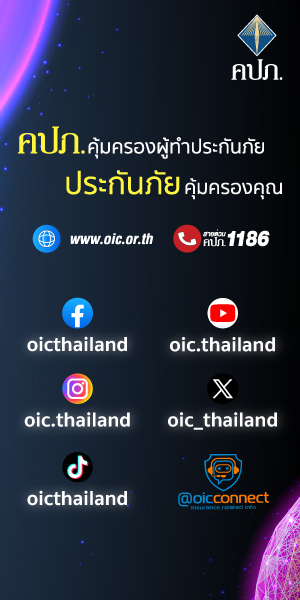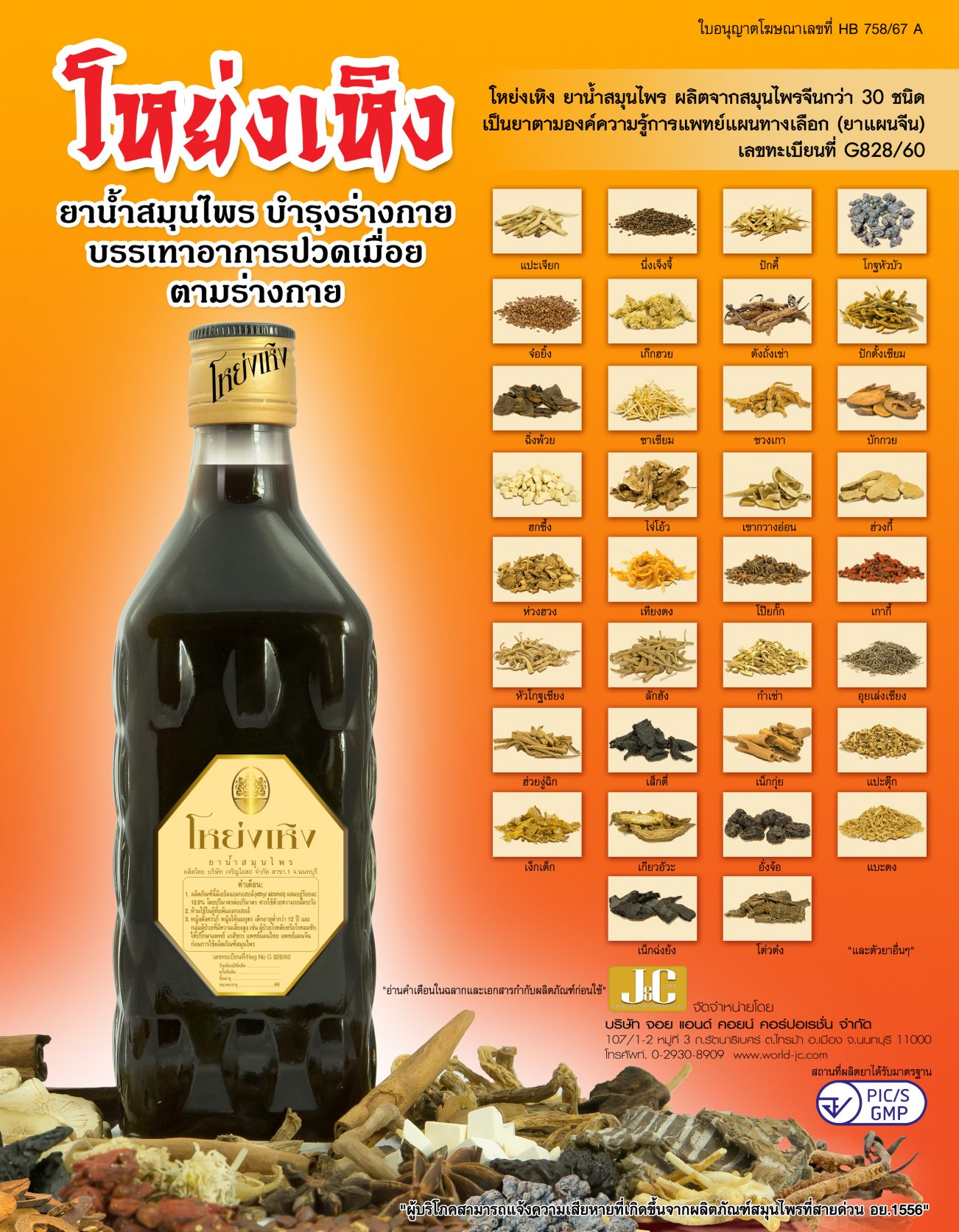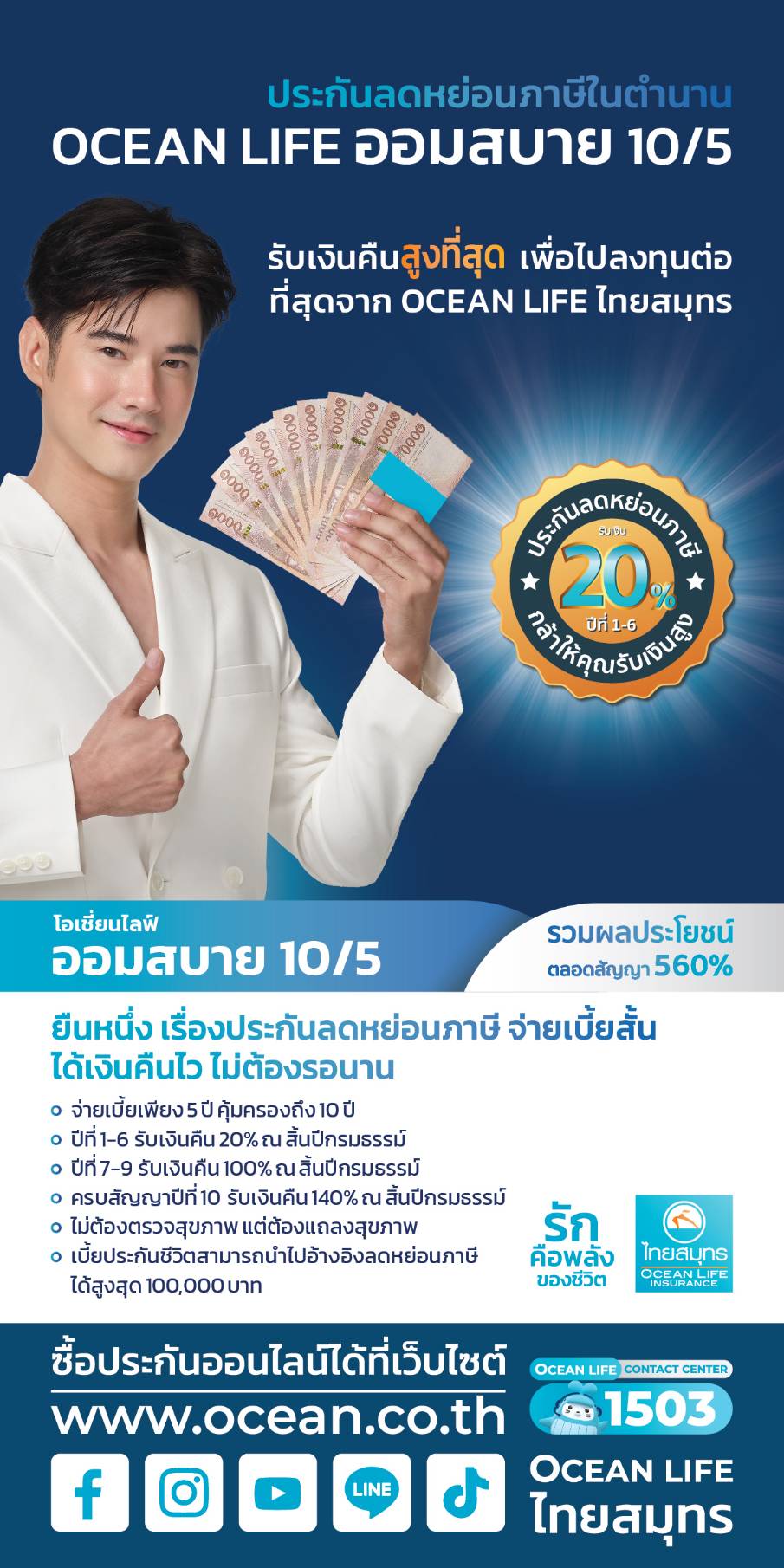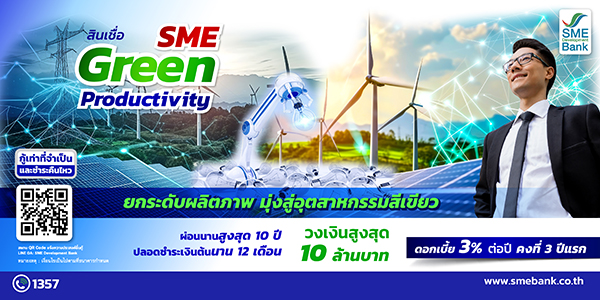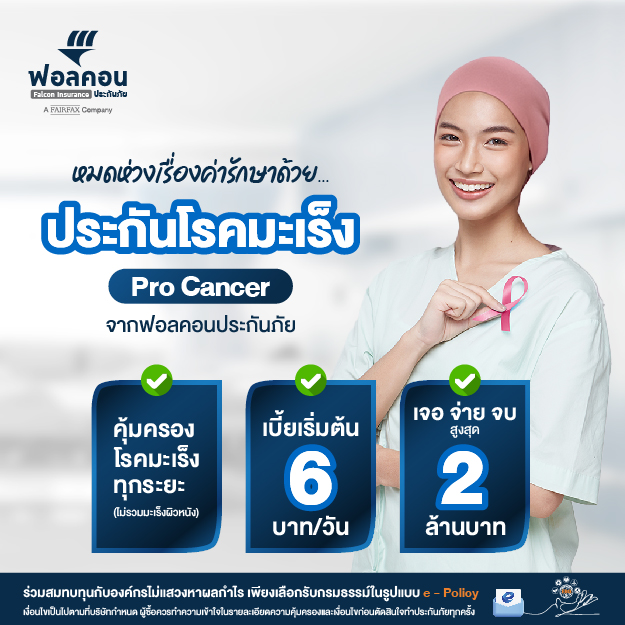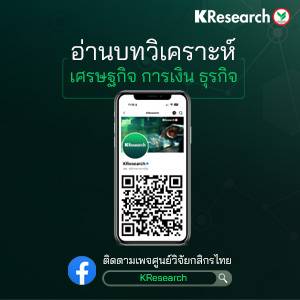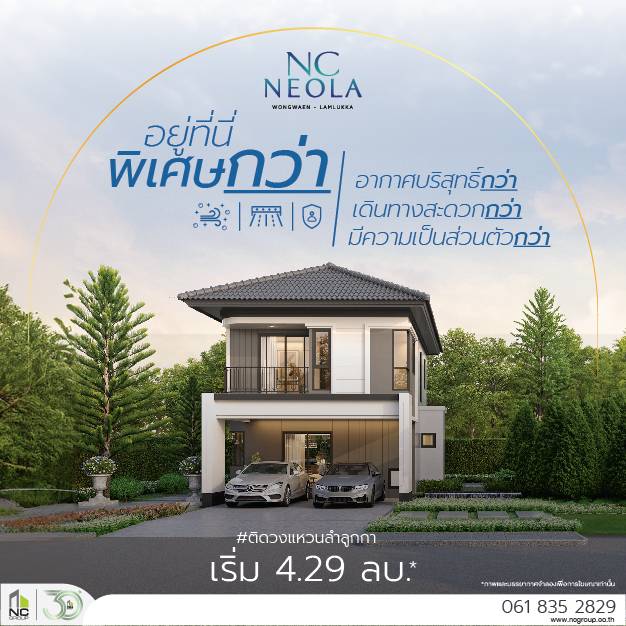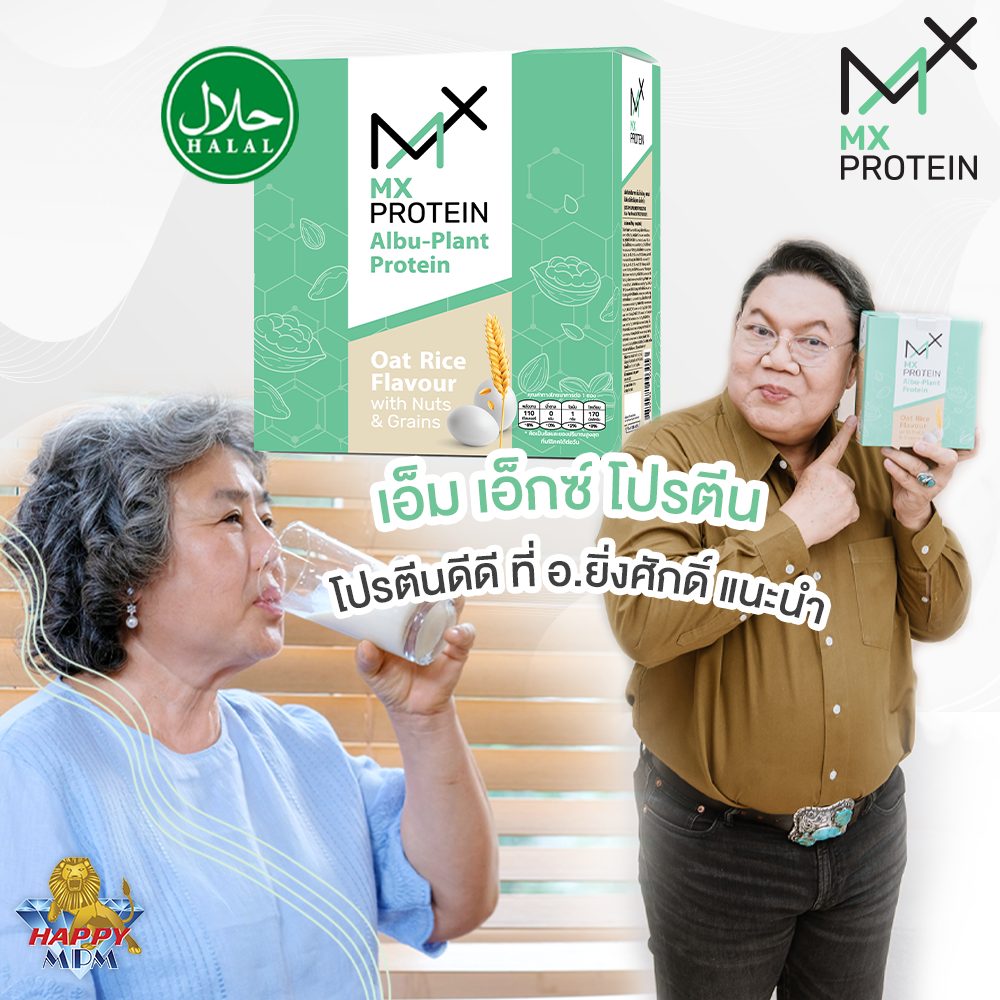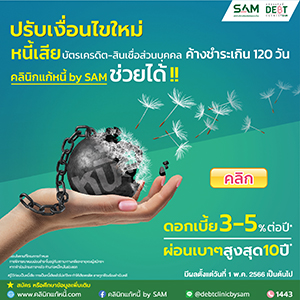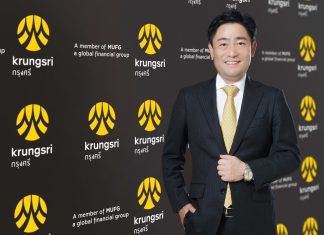เอสซีจี เผยผลประกอบการไตรมาส 1 ปี 2566 เริ่มฟื้นตัวทุกกลุ่มธุรกิจ ยอดขายและกำไรเพิ่มขึ้น อานิสงส์จากการท่องเที่ยวกลับมาคึกคักและจีนเปิดประเทศ เร่งสร้างการเติบโตระยะยาว ด้วย SCG Cleanergy ธุรกิจพลังงานสะอาดครบวงจร โตต่อเนื่องตอบเทรนด์รักษ์โลก ปลื้มลดต้นทุนได้ดีจากใช้เชื้อเพลิงทดแทนและพลังงานแสงอาทิตย์เพิ่มขึ้น ปิโตรเคมีครบวงจร LSP เริ่มทดลองเดินโรงงาน ผลิตเม็ดพลาสติกสู่ตลาดใหญ่ในเวียดนาม
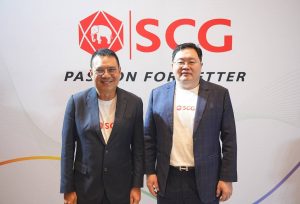
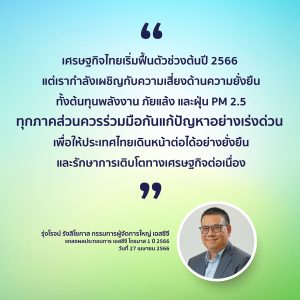
นายรุ่งโรจน์ รังสิโยภาส กรรมการผู้จัดการใหญ่ เอสซีจี กล่าวว่า “ผลประกอบการเอสซีจี ไตรมาส 1 ปี 2566 มีรายได้ 128,748 ล้านบาท เพิ่มขึ้นร้อยละ 5 จากไตรมาสก่อน กำไร 16,526 ล้านบาท ซึ่งรวมกำไรจากการปรับมูลค่ายุติธรรมของเงินลงทุนใน SCG Logistics จากการรวมธุรกิจ SCGJWD Logistics ของธุรกิจซีเมนต์และผลิตภัณฑ์ก่อสร้าง จำนวน 11,956 ล้านบาท ทั้งนี้ กำไรที่ไม่รวมรายการพิเศษอยู่ที่4,516 ล้านบาท เพิ่มขึ้น 3,446 ล้านบาทจากไตรมาสก่อน จากยอดขายที่ปรับเพิ่มขึ้นในทุกกลุ่มธุรกิจ ส่วนต่างราคาขายสินค้าเคมีภัณฑ์ที่เพิ่มขึ้น การฟื้นตัวของตลาดก่อสร้าง การท่องเที่ยวที่คึกคัก ส่งผลให้ความต้องการซีเมนต์ วัสดุก่อสร้าง และบรรจุภัณฑ์ในไทยเพิ่มขึ้น นอกจากนั้น ราคาถ่านหินปรับตัวลง และธุรกิจลดต้นทุนได้ดีจากการใช้เชื้อเพลิงทดแทนและพลังงานแสงอาทิตย์เพิ่มขึ้น ส่วนธุรกิจเคมิคอลส์ มีความพร้อมและสามารถปรับตัวตามสภาวะตลาดได้ดี โดยโรงงานระยองโอเลฟินส์ (ROC) ได้เร่งกลับมาดำเนินการผลิตตั้งแต่ต้นเดือนกุมภาพันธ์ 2566 เนื่องจากความต้องการเคมีภัณฑ์ที่สูงขึ้นในภูมิภาคจากการเปิดประเทศของจีน ซึ่งเป็นแนวโน้มที่ค่อย ๆ ปรับตัวดีขึ้น ล่าสุด ปิโตรเคมีครบวงจร LSP (Long Son Petrochemicals – ลองเซิน ปิโตรเคมิคอลส์) เริ่มทดลองเดินโรงงาน ผลิตเม็ดพลาสติกป้อนตลาดเวียดนาม ส่วน SCG Cleanergy เติบโตต่อเนื่อง ด้วยบริการซื้อ-ขายไฟฟ้าจากพลังงานสะอาดครบวงจร สำหรับภาครัฐ ธุรกิจและอุตสาหกรรม และ SCG Decor ผสาน COTTO ขยายการเติบโตสู่ผู้นำอาเซียน ในธุรกิจตกแต่งพื้นผิวและสุขภัณฑ์ครบวงจร ด้วยนวัตกรรม ดีไซน์ และรักษ์โลก
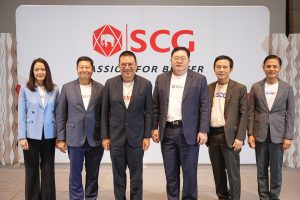
สำหรับตลาดอาเซียน การฟื้นตัวยังไม่เห็นเด่นชัด อัตราดอกเบี้ยและเงินเฟ้อยังอยู่ในระดับสูง ซึ่งส่งผลกระทบต่อภาคอสังหาริมทรัพย์ในบางประเทศ ขณะที่เศรษฐกิจโลกยังคงเปราะบาง โดยเฉพาะอเมริกาและยุโรป มีความเสี่ยงเข้าสู่การชะลอตัว จากวิกฤติเงินเฟ้อ อัตราดอกเบี้ยอยู่ในระดับสูง และการผันผวนของราคาพลังงาน
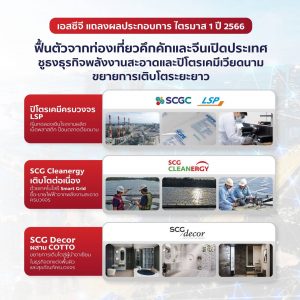
อย่างไรก็ตาม เศรษฐกิจไทยยังต้องเฝ้าระวัง 3 ปัจจัยเสี่ยง ได้แก่ 1.) ความผันผวนของราคาพลังงาน เช่น ค่าไฟ และพลังงานอื่น ๆ ซึ่งจะลดทอนขีดความสามารถในการแข่งขันของอุตสาหกรรม เสียเปรียบประเทศเพื่อนบ้านในอาเซียน ดันค่าครองชีพสูงขึ้นทันที กำลังซื้อหดตัวลง กระทบต่อต้นทุนของภาคการผลิต 2.) ความเสี่ยงภัยแล้ง สถาบันสารสนเทศทรัพยากรน้ำ (สสน.) คาดการณ์ปี 2566-2567 อาจมีฝนน้อยกว่าปกติ และฝนทิ้งช่วงมากขึ้น ทั้งเข้าสู่ปรากฏการณ์เอลนีโญ จึงเสี่ยงเกิดภัยแล้งรุนแรงข้ามปี ส่งผลกระทบทั้งภาคประชาชน การผลิต อุตสาหกรรม เกษตร และท่องเที่ยว ซึ่งเป็นเสาหลักของเศรษฐกิจไทย 3.) สถานการณ์ฝุ่น PM 2.5 ที่สูงเกินมาตรฐาน ปกคลุมหลายเมืองเศรษฐกิจและท่องเที่ยวเป็นเวลายาวนาน ส่งผลกระทบสุขภาพ สิ่งแวดล้อม และเศรษฐกิจ การเตรียมการรับมือกับปัจจัยเหล่านี้ เป็นเรื่องเร่งด่วนที่ทุกภาคส่วนควรร่วมกันหาทางออก เพื่อลดผลกระทบต่อคุณภาพชีวิต คงความสามารถในการแข่งขันของประเทศ และรักษาการเติบโตของเศรษฐกิจไทยต่อเนื่อง
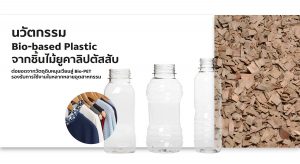
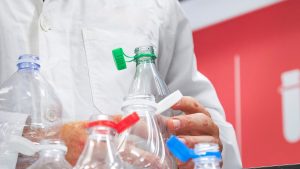
เอสซีจี เร่งปรับตัวและร่วมแก้ปัญหาจากปัจจัยเสี่ยงอย่างเต็มที่ โดยเพิ่มสัดส่วนการใช้เชื้อเพลิงทดแทนและพลังงานแสงอาทิตย์ กำหนดมาตรการใช้น้ำอย่างประหยัดและคุ้มค่า เตรียมแหล่งน้ำในพื้นที่ของบริษัทเพื่อสำรองน้ำ และช่วยเหลือชุมชน มุ่งบรรเทาปัญหาฝุ่นด้วยมาตรการเข้มงวด โดยติดตั้งระบบดักฝุ่น การทำเหมืองแบบ Semi Open Cut โดยมีขอบเขา (Buffer Zone) เป็นกำแพงกันฝุ่น ฉีดพรมน้ำตามเส้นทางขนส่ง และคลุมผ้าใบรถทุกคัน ปลูกต้นไม้รอบพื้นที่เป็นแนวกันฝุ่น (Green Belt) และร่วมกับคู่ธุรกิจ ลดฝุ่นจากงานก่อสร้าง ด้วยการใช้ BIM ในการออกแบบ และหล่อชิ้นงานสำเร็จรูปหรือทำเป็นโมดูลาร์ประกอบที่หน้างาน (Off-Site Construction) ตลอดจนมุ่งเน้นพิจารณาลงทุนอย่างรอบคอบ ปรับใช้เทคโนโลยีปัญญาประดิษฐ์ (AI) และออโตเมชั่น เช่น COTTO นำเทคโนโลยีการประมวลภาพ (Image Processing) วิเคราะห์คุณภาพสุขภัณฑ์ เพื่อให้กระบวนการตรวจสอบสินค้ารวดเร็วมากขึ้น จาก 1 วัน เป็น 1 ชั่วโมง”
นายธรรมศักดิ์ เศรษฐอุดม รองกรรมการผู้จัดการใหญ่ เอสซีจี กล่าวว่า “จากเทรนด์รักษ์โลกและค่าไฟราคาสูง ส่งผลให้ SCG Cleanergy ผู้ให้บริการซื้อ-ขายไฟฟ้าจากพลังงานสะอาดครบวงจร สำหรับภาครัฐ ธุรกิจและอุตสาหกรรม เติบโตต่อเนื่อง ได้รับการตอบรับเป็นอย่างดี ด้วยระบบเทคโนโลยีอัจฉริยะ (Smart Grid) สำหรับการซื้อ-ขายไฟฟ้าพลังงานสะอาด ที่สะดวก รวดเร็ว ทั้งยังต่อยอดให้ลูกค้าขายไฟฟ้าจากพลังงานสะอาดได้เองในอนาคต ล่าสุด ได้รับคัดเลือกเป็นผู้ผลิต-ขายไฟฟ้าจากพลังงานแสงอาทิตย์ให้ภาครัฐ จำนวน 10 โครงการ ขนาด 367 เมกะวัตต์ ซึ่งเทียบเท่าการใช้ไฟฟ้าเฉลี่ยของบ้าน 180,000 หลังคาเรือน ขณะเดียวกัน การลงทุนกับ Rondo Energy สตาร์ทอัพดาวรุ่งด้านพลังงานสะอาดระดับโลก ผู้พัฒนานวัตกรรมแบตเตอรี่กักเก็บความร้อน (Thermal Energy Storage) อุณหภูมิสูงที่สุดในโลก เพื่อจ่ายพลังงานความร้อนให้โรงงานทดแทนการใช้บอยเลอร์ (Boiler) ทำให้ลดการเผาไหม้เชื้อเพลิงฟอสซิล ลดการปล่อยคาร์บอนไดออกไซด์ ล่าสุด ติดตั้งใช้จริงแล้วที่ บริษัท Calgren Renewable Fuels ประเทศสหรัฐอเมริกา”
นายธนวงษ์ อารีรัชชกุล ประธานเจ้าหน้าที่บริหาร และกรรมการผู้จัดการใหญ่ บริษัทเอสซีจี เคมิคอลส์ จำกัด (มหาชน) หรือ SCGC กล่าวว่า “ยอดขายรวมของ SCGC ปรับตัวดีขึ้น จากความพร้อมเเละความสามารถในการปรับตัวตามสภาวะตลาดได้ดี อีกทั้งความต้องการเคมีภัณฑ์ที่สูงขึ้น หลังจากจีนเปิดประเทศ โรงงานระยองโอเลฟินส์ (ROC) จึงเร่งกลับมาดำเนินการผลิตให้ทันต่อความต้องการตลาด ล่าสุด โครงการปิโตรเคมีครบวงจร LSP เวียดนาม เริ่มทดลองเดินเครื่องในส่วนพอลิโอเลฟินส์ (PP, HDPE, LLDPE) เพื่อผลิตเม็ดพลาสติกป้อนตลาดเวียดนาม ซึ่งมีฐานลูกค้าอยู่แล้ว และจะดำเนินการเชิงพาณิชย์ในกลางปีนี้ ประกอบกับ LSP มีจุดแข็งในการบริหารจัดการต้นทุนได้ดี ด้วยการเลือกใช้วัตถุดิบให้เหมาะสมกับสภาวะตลาด ขณะเดียวกัน ธุรกิจยังเดินหน้า SCGC GREEN POLYMERTM นวัตกรรมเป็นมิตรกับสิ่งแวดล้อม คาดว่าจะเติบโตอย่างต่อเนื่องในปีนี้ หลังจาก SCGC Green Polymer มียอดขายกว่า 140,000 ตันในปีที่ผ่านมา โดยได้ร่วมกับคู่ธุรกิจระดับโลก อาทิ บริษัท คอลเกต-ปาล์มโอลีฟ (ประเทศไทย) จำกัด พัฒนา “บรรจุภัณฑ์น้ำหนักเบาจากเม็ดพลาสติกรีไซเคิลคุณภาพสูง (High Quality Post-Consumer Recycled Resin – PCR)” สำหรับสินค้ากลุ่มแป้ง ภายใต้แบรนด์แคร์ และโพรเทคส์ โดยใช้เทคโนโลยี SMX™ ซึ่งแข็งแรงกว่าพลาสติกทั่วไปถึงร้อยละ 20 แต่ลดน้ำหนักบรรจุภัณฑ์ได้สูงสุดร้อยละ 8 ช่วยลดการปล่อยก๊าซเรือนกระจก และร่วมกับ บริษัท SACMI ดีไซน์ “ฝาขวดน้ำอัดลมรักษ์โลก” ที่มีวงแหวนยึดติดกับคอขวด (Tethered Caps) ช่วยลดการหลุดรอดสู่สิ่งแวดล้อม นำกลับเข้าสู่กระบวนการรีไซเคิลอย่างมีประสิทธิภาพมากขึ้น”
นายนิธิ ภัทรโชค กรรมการผู้จัดการใหญ่ ธุรกิจซีเมนต์และผลิตภัณฑ์ก่อสร้าง เอสซีจี กล่าวว่า “ผลประกอบการของธุรกิจซีเมนต์และผลิตภัณฑ์ก่อสร้างดีขึ้น จากการเริ่มฟื้นตัวของเศรษฐกิจและลดต้นทุนโดยเพิ่มสัดส่วนเชื้อเพลิงทดแทน จากร้อยละ 34 ในปีก่อน เป็นร้อยละ 38 และเพิ่มสัดส่วนพลังงานแสงอาทิตย์ จาก 177 เมกะวัตต์ในปีก่อน เป็น 179 เมกะวัตต์ ในไตรมาส 1 ปี 2566 ขณะที่นวัตกรรมกรีนมีความนิยมมากขึ้น “ปูนงานโครงสร้าง เอสซีจี สูตรไฮบริด” ช่วยลดโลกร้อน มีสัดส่วนการใช้เพิ่มขึ้นร้อยละ 50 โดยในไตรมาส 1 ช่วยลดการปล่อยคาร์บอนไดออกไซด์ในกระบวนการผลิตได้กว่า 80,000 ตัน หรือเทียบเท่าการปลูกต้นไม้ 8 ล้านต้น ทั้งยังแข็งแรง สวยงาม ใช้ก่อสร้างแล้วในหลายโครงการตามมาตรฐานอาคารเขียว อาทิ โครงการ ONE BANGKOK และคอนโดฯ ศุภาลัย ลอฟท์ รัชดาฯ-วงศ์สว่าง ขณะที่ช่วงฤดูร้อนและค่าไฟปรับตัวสูงขึ้น ส่งผลให้ “SCG Solar Roof Solutions” เติบโตขึ้นร้อยละ 313 จากช่วงเดียวกันของปีก่อน และเร่งดัน “SCG Air Scrubber” นวัตกรรมเพื่ออาคารขนาดใหญ่ ช่วยประหยัดพลังงาน ได้ร้อยละ 20-30 และช่วยลดก๊าซเสีย เช่น คาร์บอนไดออกไซด์ ล่าสุด ลงทุนเพิ่มกับบริษัท enVerid สตาร์ทอัพชั้นนำสัญชาติอเมริกัน เพื่อปรับปรุงประสิทธิภาพการใช้พลังงานและคุณภาพอากาศภายในอาคารต่าง ๆ ทั่วโลก”
นายวิชาญ จิตร์ภักดี ประธานเจ้าหน้าที่บริหาร บริษัทเอสซีจี แพคเกจจิ้ง จำกัด (มหาชน) หรือ SCGP กล่าวว่า “ผลประกอบการ SCGP ปรับตัวดีขึ้น เนื่องจากสามารถตอบสนองความต้องการบรรจุภัณฑ์เพื่อสินค้าอุปโภคบริโภคในประเทศ และการท่องเที่ยวที่ฟื้นตัว นอกจากนี้ ยังได้เตรียมลงทุนใน Starprint Vietnam Joint Stock Company (SPV) เวียดนาม ซึ่งเป็นผู้ผลิตบรรจุภัณฑ์กระดาษพรีเมียมคุณภาพสูง ได้แก่ บรรจุภัณฑ์กล่องกระดาษแข็งแบบพับได้ (Offset Folding Carton) กล่องบรรจุภัณฑ์คงรูปคุณภาพสูง (Rigid Boxes) และบรรจุภัณฑ์ที่เน้นความสวยงาม ซึ่งได้รับการยอมรับจากบริษัทชั้นนำระดับโลก อีกทั้ง ร่วมกับ Origin Materials บริษัทเทคโนโลยีชั้นนำจากสหรัฐอเมริกา พัฒนา “Bio-based Plastic จากชิ้นไม้ยูคาลิปตัสสับ” มาผ่านกระบวนการแปรรูปจนได้เป็นสารตั้งต้น Bio-PTA เพื่อใช้ผลิตเป็น Bio-PET สำหรับนำไปผลิตบรรจุภัณฑ์และสินค้าต่าง ๆ อาทิ บรรจุภัณฑ์เครื่องดื่ม บรรจุภัณฑ์อาหาร สิ่งทอและเครื่องนุ่งห่ม และรองรับการใช้ Bio-PET ในหลากหลายอุตสาหกรรมที่ต้องการใช้วัตถุดิบยั่งยืน และสามารถนำกลับเข้าสู่กระบวนการรีไซเคิลได้อย่างมีประสิทธิภาพ”
นายรุ่งโรจน์ เผยว่า “งบการเงินรวมก่อนสอบทานของเอสซีจี ไตรมาส 1 ประจำปี 2566 มีรายได้จากการขาย 128,748 ล้านบาท เพิ่มขึ้นร้อยละ 5 จากไตรมาสก่อนกำไร 16,526 ล้านบาท ซึ่งรวมกำไรจากการปรับมูลค่ายุติธรรมของเงินลงทุนใน SCG Logistics จากการรวมธุรกิจ SCGJWD Logistics ของธุรกิจซีเมนต์และผลิตภัณฑ์ก่อสร้าง จำนวน 11,956 ล้านบาท เพิ่มขึ้น 16,369 ล้านบาทจากไตรมาสก่อน ทั้งนี้ กำไรที่ไม่รวมรายการพิเศษอยู่ที่4,516 ล้านบาท เพิ่มขึ้น 3,446 ล้านบาทจากไตรมาสก่อน จากส่วนต่างราคาขายสินค้าเคมีภัณฑ์ และปริมาณขายที่เพิ่มขึ้น ประกอบกับต้นทุนพลังงานที่ลดลง
เมื่อเทียบกับช่วงเดียวกันของปีก่อน รายได้จากการขายลดลงร้อยละ 16 ส่วนใหญ่มาจากธุรกิจเคมิคอลส์ ขณะที่กำไรที่ไม่รวมรายการพิเศษลดลง ร้อยละ 42 จากช่วงเดียวกันของปีก่อน โดยมีสาเหตุหลักจากปริมาณขายและส่วนแบ่งกำไรจากบริษัทร่วมที่ลดลงของธุรกิจเคมิคอลส์ รวมทั้งต้นทุนพลังงานที่เพิ่มขึ้นจากช่วงเดียวกันของปีก่อน
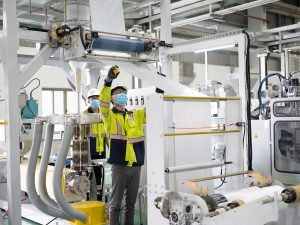
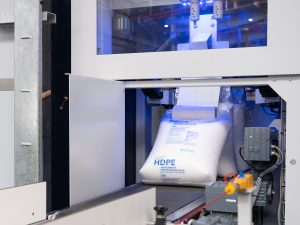
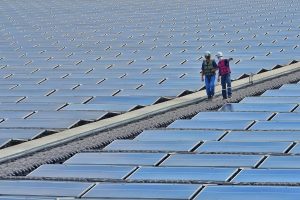
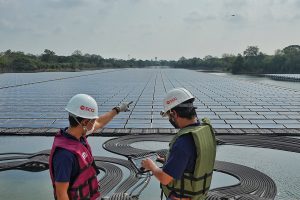
สำหรับสินค้าและบริการที่มีมูลค่าเพิ่ม (High Value Added Products & Services – HVA) ในไตรมาสที่ 1 ปี 2566 มีรายได้ อยู่ที่ 42,184 ล้านบาท คิดเป็นร้อยละ 33 ของรายได้จากการขายรวม
นอกจากนี้ ยังมีรายได้จากการดำเนินธุรกิจในต่างประเทศ รวมการส่งออกจากประเทศไทย ในไตรมาสที่ 1 ปี 2566 ทั้งสิ้น 53,468 ล้านบาท คิดเป็นสัดส่วนร้อยละ 42 ของรายได้จากการขายรวม
สินทรัพย์รวมของเอสซีจี ณ วันที่ 31 มีนาคม 2566 มีมูลค่า 923,725 ล้านบาท โดยร้อยละ 44 เป็นสินทรัพย์ในอาเซียน (ไม่รวมไทย)
ผลการดำเนินงานไตรมาสที่ 1 ปี 2566 แยกตามรายธุรกิจ ดังนี้
ธุรกิจเคมิคอลส์ (SCGC) มีรายได้จากการขาย 46,805 ล้านบาท เพิ่มขึ้นร้อยละ 8 จากไตรมาสก่อน เนื่องจากราคาขายสินค้าและปริมาณขายเพิ่มขึ้น ในขณะที่ลดลงร้อยละ 32 เมื่อเทียบกับช่วงเดียวกันของปีก่อน โดยมีกำไรสำหรับงวด 1,356 ล้านบาท เพิ่มขึ้น 2,408 ล้านบาท จากไตรมาสก่อน เนื่องจากส่วนต่างราคาขายและปริมาณขายสินค้าเพิ่มขึ้น ในขณะที่ลดลง 2,232 ล้านบาท จากช่วงเดียวกันของปีก่อน
ธุรกิจซีเมนต์และผลิตภัณฑ์ก่อสร้าง มีรายได้จากการขาย 50,800 ล้านบาท เพิ่มขึ้นร้อยละ 3 จากไตรมาสก่อน และใกล้เคียงกับช่วงเดียวกันของปีก่อน เนื่องจากปริมาณขายที่เพิ่มขึ้นและกลยุทธ์การปรับราคาขายสินค้า ส่งผลให้รายได้เพิ่มขึ้น ทั้งในประเทศและในภูมิภาคอื่น ๆ โดยมีกำไรสำหรับงวด 13,463 ล้านบาท เพิ่มขึ้น 10,972 ล้านบาท จากช่วงเดียวกันของปีก่อน โดยมาจากกำไรจากการปรับมูลค่ายุติธรรมของเงินลงทุนใน SCG Logistics และมีกำไรจากการดำเนินงานปกติ (Core Profit) ในไตรมาสนี้เท่ากับ 1,507 ล้านบาท ลดลง 984 ล้านบาท จากช่วงเดียวกันของปีก่อน สาเหตุหลักจากต้นทุนวัตถุดิบรวมทั้งพลังงานที่ปรับขึ้นในช่วงที่ผ่านมา
ธุรกิจแพคเกจจิ้ง (SCGP) มีรายได้จากการขาย 33,729 ล้านบาท เพิ่มขึ้นร้อยละ 1 จากไตรมาสก่อน สาเหตุหลักจากการเพิ่มขึ้นของปริมาณการขายในกลุ่มธุรกิจบรรจุภัณฑ์แบบครบวงจรและธุรกิจเยื่อและกระดาษ และลดลงร้อยละ 8 เมื่อเทียบกับช่วงเดียวกันของปีก่อน สาเหตุจากผลกระทบต่อเนื่องจากนโยบายล็อกดาวน์ท่ามกลางการแพร่ระบาดของโควิดในปีก่อนของประเทศจีน ทำให้ความต้องการกระดาษบรรจุภัณฑ์โดยรวมลดลง ซึ่งส่งผลต่อปริมาณการขายและราคาขายที่ลดลงตามไปด้วย ประกอบกับอัตราเงินเฟ้อและอัตราดอกเบี้ยที่อยู่ในระดับสูง ส่งผลให้การใช้จ่ายของผู้บริโภคหดตัวลง โดยมีกำไรสำหรับงวด 1,220 ล้านบาท เพิ่มขึ้นร้อยละ 171 จากไตรมาสก่อน สาเหตุหลักจากต้นทุนที่ปรับตัวลงโดยเฉพาะต้นทุนวัตถุดิบและค่าขนส่ง พร้อมกับการฟื้นตัวของปริมาณการขายกระดาษบรรจุภัณฑ์สำหรับตลาดทั้งในประเทศและส่งออก ซึ่งเมื่อเทียบกับช่วงเดียวกันของปีก่อน มีกำไรสำหรับงวด ลดลงร้อยละ 26 สาเหตุจากปริมาณขายและราคาขายที่ลดลง”
“การเริ่มฟื้นตัวของเศรษฐกิจไทยถือเป็นสัญญาณดีของปี 2566 หากทุกภาคส่วนร่วมกันแก้ปัญหา ที่ส่งผลต่อสุขภาพ สิ่งแวดล้อม และเศรษฐกิจ จากต้นทุนพลังงานและไฟฟ้าพุ่งสูง ความเสี่ยงภัยแล้ง และปัญหาฝุ่น PM 2.5 จะช่วยให้ประเทศไทยเราเดินหน้าต่อไปได้ คงความสามารถในการแข่งขัน และรักษาการเติบโตของเศรษฐกิจได้อย่างต่อเนื่อง” นายรุ่งโรจน์ ย้ำปิดท้าย
SCG Announces Q1/2023 Operating Results:
Recovery Driven by Booming Tourism and China’s Reopening,
Highlighting Clean Energy and Vietnam Petrochemicals for Long-term Growth
Bangkok : 27 April 2023 – SCG reported its operating results for Q1/2023, showing a recovery across all business units, with increased sales and profits boosted by the revival of tourism and China’s border reopening. To propel long-term growth, SCG is accelerating its focus on SCG Cleanergy, an end-to-end clean energy business that continuously grows in response to global trends in environmental protection. Successful cost reduction was achieved through the increased use of alternative fuels and solar energy. The petrochemical complex project, LSP, has commenced trial operations, producing plastic resins to supply the Vietnamese market.
Roongrote Rangsiyopash, President and CEO of SCG, disclosed, “SCG’s Q1/2023 operating results showed revenue of 128,748 MB, an increase of 5% q-o-q, and a profit of 16,526 MB, including the one-time gain from fair value adjustment of investment in SCG Logistics, following SCGJWD Logistics merger transaction in Cement-Building Materials business amounting to 11,956 MB. Profit excluding extra items amounted to 4,516 MB. This is an improvement from the previous quarter, with an increase of 3,446 MB driven by increased sales in all business units, higher chemicals spreads, the recovery of the construction market and booming tourism have led to higher demand for cement, building materials, and packaging in Thailand, coupled with falling coal prices and reduced costs through greater use of alternative fuels and solar energy in business operations. Chemicals Business is well-prepared and able to effectively adapt to market conditions. The Rayong Olefins (ROC) plant has accelerated resuming production since the beginning of February 2023 due to rising regional demand following China’s reopening, signifying a progressively positive trend. Recently, the petrochemical complex plant LSP (Long Son Petrochemicals) began trial operations, producing plastic resins for the Vietnamese market. SCG Cleanergy continues to expand its end-to-end clean energy services for the public, business, and industrial sectors. Furthermore, SCG Decor has announced a merging plan with COTTO to expand and grow as an ASEAN leader in integrated decor surfaces and bathroom business, with a focus on innovation, design, and environmental friendliness.
Regarding the ASEAN market, recovery appears to need more time. High interest rates and inflation rate continue to impact the real estate sector in some countries. Meanwhile, the global economy remains fragile, particularly in the United States and Europe, with risks of an economic slowdown due to the inflation crisis, high interest rates, and fluctuations in energy prices.
However, the Thai economy still needs to be cautious of three risk factors: 1.) Volatility of energy prices, such as costs of electricity and other types of energy, which could weaken the competitiveness of industries in Thailand as a whole, resulting in an immediate increase in the cost of living and a decrease in purchasing power, impacting the cost of production; 2.) The risk of drought. The Hydro Informatics Institute (HII) forecasts that in 2023-2024, there may be below-average rainfall, longer dry spells, and the possibility of an El Niño event, increasing the risk of severe droughts that would affect the public, production, industry, agriculture, and tourism sectors, which are the pillars of the Thai economy; and 3.) The PM 2.5 dust pollution, which has been above standard levels for a long time covering many economic and tourist cities, has impacted health, the environment, and the economy. Preparing for these factors is an urgent matter that all sectors should collaborate to find solutions to reduce the impact on the quality of life, maintain the country’s competitiveness, and sustain the growth of the Thai economy.
SCG is urgently adapting and collaborating to address issues arising from risk factors to the fullest extent by increasing the proportion of alternative fuels and solar energy use, setting water-saving and efficient water usage measures, preparing water sources in company areas for water reserves, and assisting communities. On top of that, SCG aims to alleviate dust pollution with strict measures by installing dust capture systems, conducting semi-open cut mining with buffer zones serving as a dust barrier, spraying water along transport routes, covering every vehicle with tarpaulins, and planting trees as a green belt around plants. SCG also works with partners to reduce dust from construction work by using BIM in the design process and producing of prefabricated components or modular assembly for off-site construction. Furthermore, SCG places emphasis on prudent investment consideration and embraces artificial intelligence (AI) and automation technologies. For example, COTTO employs image processing technology to analyze the quality of sanitary ware, allowing for faster product inspection and reducing the time from 1 day to just 1 hour.”
Thammasak Sethaudom, Executive Vice President of SCG, said, “With the global trend towards environmental conservation and high electricity prices, SCG Cleanergy, an end-to-end clean energy electricity trading provider for the public sector, businesses, and industries, has been growing continuously and well-received. The Smart Grid technology for buying and selling clean energy electricity is convenient and fast, and it also enables customers to sell their clean energy electricity in the future. Recently, we have been selected to produce and sell solar power to the government in 10 projects, with a total capacity of 367 megawatts, equivalent to the average electricity consumption of 180,000 households. At the same time, investing in Rondo Energy, a rising clean energy startup, which develops the world’s highest temperature thermal energy storage battery innovation to supply heat energy to plants as a replacement for boilers, helps reduce the combustion of fossil fuels and lower carbon dioxide emissions. The technology has been recently installed and put into use at Calgren Renewable Fuels in the United States.”
Tanawong Areeratchakul, CEO and President of SCG Chemicals Public Company Limited or SCGC, said, “SCGC’s total sales have improved due to the readiness and ability to adapt effectively to market conditions. Furthermore, the demand for chemical products has increased after China reopened. As a result, the Rayong Olefins (ROC) plant has accelerated to resume production to meet market demand. Recently, the LSP petrochemical complex project in Vietnam has begun trial operations of the polyolefins (PP, HDPE, LLDPE) segment to produce plastic resins to feed the Vietnamese market, where we already have a customer base, and we will commence commercial operations by the middle of this year. LSP has a strong advantage in cost management, thanks to its feedstock flexibility that allows it to align with market conditions. At the same time, the business is moving forward with SCGC GREEN POLYMERTM, an eco-friendly innovation, which will continue to grow this year following last year’s sales volume of 140,000 tons. SCGC has collaborated with global business partners such as Colgate-Palmolive (Thailand) to develop ‘Lightweight packaging made from High Quality Post-Consumer Recycled Resin (PCR)’ for Care and Protex powder products using SMX™ technology, where the packaging output is 20% stronger than conventional plastics but reduces packaging weight by up to 8%, helping to reduce greenhouse gas emissions. In addition, we worked with SACMI to design ‘eco-friendly bottle caps for carbonated beverages’ with tethered caps, which helps reduce litter entering the environment and makes recycling more efficient.”
Nithi Patarachoke, President of Cement-Building Materials Business of SCG, said, “The performance of the Cement-Building Materials Business has improved due to the gradual economic recovery and cost reduction by increasing the use of alternative fuels, from 34%last year to 38%, and increasing the use of solar energy from 177 megawatts last year to 179 megawatts in Q1/2023. As green innovations have gained ground, the use of ‘SCG Hybrid Structural Cement’ to help mitigate global warming has increased by 50%, helping to reduce carbon dioxide emissions in the production process by more than 80,000 tons in Q1, equivalent to planting 8 million trees. The product offers robustness and aesthetics, and it has been used in several projects adhering to green building standards, such as the ONE BANGKOK project and the Supalai Loft Ratchada-Wongsawang project. As summer approaches and electricity costs rise, the ‘SCG Solar Roof Solutions’ business grew by 313% y-o-y, and the ‘SCG Air Scrubber’ innovation for large buildings has been accelerated, helping to save 20-30% of energy and minimize pulluting gas emissions such as carbon dioxide. Recently, we have increased our investment in enVerid, a leading American startup, to improve energy efficiency and indoor air quality in buildings worldwide.”
Wichan Jitpukdee, Chief Executive Officer of SCG Packaging Public Company Limited or SCGP, said, “SCGP’s operating results have improved owing to its ability to fulfill the domestic demand for consumer packaging and the recovering tourism industry. In addition, SCGP is gearing up to invest in Starprint Vietnam Joint Stock Company (SPV), one of Vietnam’s leading producer of offset folding cartons, rigid boxes and luxury packaging, that has a prominent client base and long-term track record of commercial relationship with renowned multinational and national companies. Furthermore, SCGP is partnering with Origin Materials, a leading US technology company, to develop ‘Bio-based Plastic from Eucalyptus Woodchip’ by processing Eucalyptus woodchip using advanced technology to produce Bio-PTA. This material will be used to manufacture Bio-PET for packaging and other products, such as beverage packaging, food packaging, textile & apparels. This project would support the use of Bio-PET in multiple industries which require sustainable raw materials while also enable efficient recycle operation.”
Roongrote revealed, “The Company’s unreviewed Operating Results for Q1/2023 registered Revenue from Sales of 128,748 MB, an increase of 5% q-o-q. Profit for the Period was 16,526 MB, which includes gain from fair value adjustment of investment in SCG Logistics, following SCGJWD Logistics merger transaction in Cement-Building Materials business amounting to 11,956 MB, improving 16,369 MB q-o-q. Meanwhile, Profit excluding extra items would have been 4,516 MB, which increased 3,446 MB q-o-q, due to higher chemicals spreads and sales volume, as well as lower energy cost.
Compared to the same period of the previous year, Revenue from Sales fell by 16%, mainly from Chemicals Business. Meanwhile, Profit excluding extra items decreased by 42% y-o-y, largely attributable to lower sales volume and equity income in Chemicals Business, as well as higher energy cost compared to the previous year.
In Q1/2023, SCG’s Revenue from Sales of High Value Added Products and Services (HVA) reached 42,184 MB, accounting for 33% of total Revenue from Sales.
SCG’s Revenue from operations outside Thailand, including export sales from Thailand, registered 53,468 MB in Q1/2023, or 42% of total Revenue from Sales.
SCG’s total assets as of 31 March 2023, amounted to 923,725 MB, of which 44% represented assets in ASEAN (excluding Thailand).
The Q1/2023 operating results by business units are as follows:
Chemicals Business (SCGC) recorded Revenue from Sales of 46,805 MB, increased 8% q-o-q due to higher product prices and sales volume, while sales dropped by 32% y-o-y. Profit for the Period was 1,356 MB, increasing 2,408 MB q-o-q, from higher spreads and sales volume, while dropping by 2,232 MB y-o-y.
Cement-Building Materials Business recorded Revenue from Sales of 50,800 MB, increasing by 3% q-o-q and similar to the same period last year thanks to increased sales volume and commercial strategies, resulting in higher revenues both domestically and in other regions. Profit for the Period was 13,463 MB, an increase of 10,972 MB y-o-y, mainly due to gain from fair value adjustment of investment in SCG Logistics, whereas core Profit for the Period would have been 1,507 MB, a decrease of 984 MB y-o-y mainly due to higher raw material and energy costs.
Packaging Business (SCGP) recorded Revenue from Sales of 33,729 MB, up 1% q-o-q mainly due to the increase in sales volume in the integrated packaging and the pulp and paper business but decreased 8% y-o-y due to the ongoing impact of lockdown policies amid the COVID-19 pandemic last year in China, resulting in a decline in overall demand for packaging paper, which in turn affected sales volume and selling prices. Coupled with high exchange rates and interest rates, consumer spending contracted. Profit for the Period was 1,220 MB, increasing by 171% q-o-q from the reduced cost, particularly raw material and transportation costs, along with the recovery of packaging paper sales volume for domestic and export markets. When compared to the same period last year, Profit for the Period decreased by 26% due to reduced sales volume and selling prices.”
“The progressive recovery of Thailand’s economy is a positive sign for 2023. If all sectors work together to address issues affecting health, the environment, and the economy, arising from soaring energy and electricity costs, drought risks, and PM 2.5 dust problems, it will help our country, Thailand, move forward, maintain competitiveness, and sustain economic growth.” Roongrote concluded.


